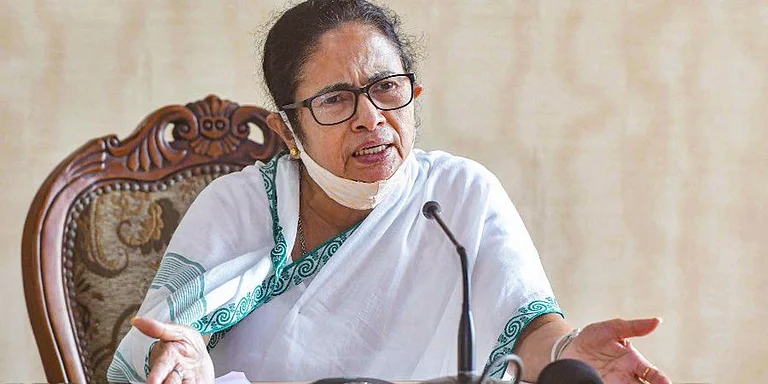
Pakistan’s 27th amendment was first approved by the National Assembly and was ratified by President Asif Zardari on the evening of November 13.
According to the amendment, Pakistan Army Chief Field Marshal Syed Asim Munir has gained lifelong legal immunity and authority over all branches of the military.
The record of Pakistan’s judiciary is mixed. Many have given in to the wishes of the army and justified army rule under “the doctrine of necessity.’
Pakistan’s fledgling democracy has long been overshadowed by its powerful military, but the passage of the 27th Constitutional Amendment marks a decisive shift. Field Marshal Asim Munir now has a Constitutional cover to do pretty much what he pleases. The amendment, first approved by the National Assembly, was rubber-stamped by President Asif Zardari late on Thursday.
Military coups and dictatorships have sadly been part of Pakistan’s history since independence. The last general to organise a coup was Pervez Musharraf; since then, the army has preferred to rule from behind the scenes. No civilian prime minister has survived without the blessings of the military chief. Anyone who dared to do so was thrown out. Nawaz Sharif, who tried to assert civilian supremacy, had to pay a heavy price. He was dismissed without completing his tenure in 1993, 1999 and 2017. When Nawaz Sharif and the late Prime Minister Atal Bihari Vajpayee attempted to break the India-Pakistan deadlock and opt for peace, his army chief, Pervez Musharraf, planned the Kargil invasion. The Lahore Declaration, which was at the heart of the peace initiative, was thrown into the dustbin of history.
India realises now that making peace with the civilian government is meaningless without the support of the powerful military.
Imran Khan, the cricketer-turned-politician who replaced Sharif, was directly backed by the army during the elections. He ran what he termed a hybrid government, yet when he fell out with the army chief, his days were numbered. Today he is in jail.
Prime Minister Shehbaz Sharif is in charge because he has taken care to be on the right side of Field Marshal Asim Munir. With this amendment, the unwritten rule of military control over elected governments becomes institutionalised.
Asim Munir‘s rising stature
The 27th Amendment has ensured that the army chief will have special privileges. He will get immunity from legal action for life. No one can touch him even after retirement. As a Field Marshal, he is a five-star general, and the amendment ensures that Five-star officers will “retain the rank, privileges and remain in uniform for life” and can be removed from their post only through a two-thirds majority in the National Assembly.
Asim Munir will now assume the powers of Chief of Defence Forces, indicating that Pakistan’s navy and air force will be under his command. In the past, the post was rotated between the three services. A new post of Commander of the National Strategic Command, overseeing nuclear and strategic assets, has been created. The head will be appointed by the PM on the recommendation of the army chief. That post is again reserved for the army.
The army had become unpopular after the arrest in 2023 of former Prime Minister Imran Khan, a leader with a mass following across the country. During the protests following Khan’s arrest, protesters shouted slogans against the military and ransacked a commander’s home, something unheard of in Pakistan’s history.
However, after Operation Sindoor, the army as well as its chief were able to regain much of the lost ground. However, this latest move by the army, backed by the pliant ruling coalition, is likely to diminish Asim Munir’s popularity.
Supreme Court hit hard
In the name of judicial reforms, Pakistan’s Supreme Court has been stripped of all authority to deal with Constitutional matters. The SC will now primarily deal with civil cases and has no power to intervene in military matters. Two senior Supreme Court judges, Mansoor Ali Shah and Athar Minallah, have resigned in protest.
Justice Shah dubbed the amendment a “grave assault on the Constitution of Pakistan, which 'dismantles the Supreme Court, subjugates the judiciary to executive control, and strikes at the very heart of our constitutional democracy.’’
A new Federal Constitutional Court (FCC) has been carved out to “reduce the Supreme Court's workload, ensure timely adjudication of constitutional cases and strengthen judicial independence and credibility,’’ Dawn, Pakistan’s leading English newspaper, quoted unnamed senior officials justifying the amendment.
The official excuse is reforming the judiciary to improve the efficiency of the Supreme Court and give judges time to look into people’s grievances. Six judges will preside over this federal court. Justice Aminuddin Khan was sworn in as the first chief justice of the Federal Constitutional Court.
The record of Pakistan’s judiciary is mixed. Many have given in to the wishes of the army and justified army rule under “the doctrine of necessity.’’ However, when Pervez Musharraf sacked the then Chief Justice Iftikhar Chowdhury and placed him under house arrest in an attempt to control the judiciary, lawyers took to the streets in protest. Musharraf was forced to beat a hasty retreat.



























